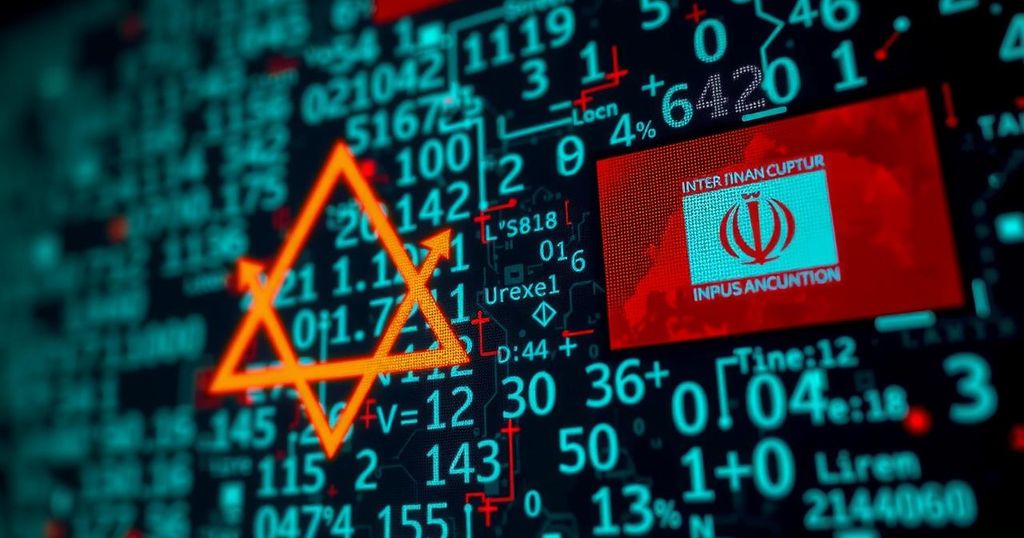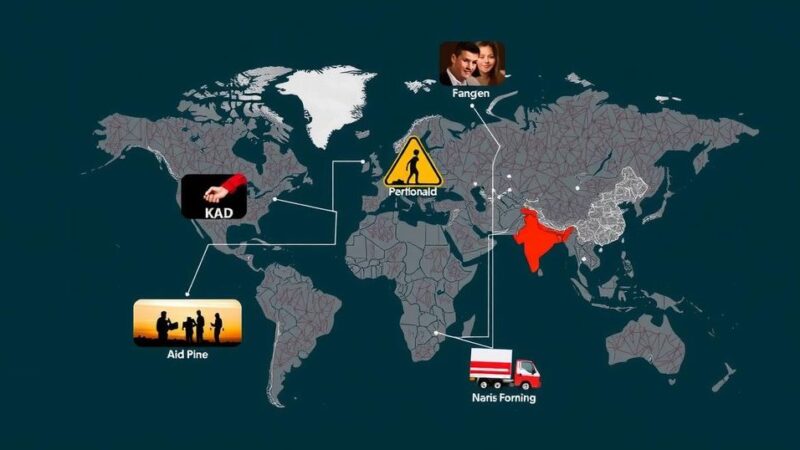Microsoft reports a dramatic increase in Iranian cyberattacks against Israel following the Gaza war, with nearly half of observed operations targeting Israeli businesses. Social media disinformation initiatives have also surged, aiming to destabilize Israeli governance after the Hamas attack. This indicates a strategic shift in Iran’s cyber warfare focus from the United States to Israel.
Recent analyses have revealed that Israel has emerged as the primary target of Iranian cyberattacks following the initiation of the Gaza conflict in October 2023. Prior to this confrontation, Iranian cyber operations predominantly targeted the United States. According to the Microsoft Digital Defense Report, there has been a significant escalation in Iranian cyber operations directed at Israeli entities since the outbreak of the conflict. Specifically, data indicates that from October 7, 2023, to July 2024, nearly half of the cyber operations tracked by Microsoft were aimed at Israeli companies. In contrast, from July to October 2023, only 10 percent of Iranian cyberattacks were directed at Israel, while 35 percent targeted American organizations and 20 percent affected entities in the United Arab Emirates. In addition to cyberattacks, Iranian operatives have implemented various disinformation campaigns on social media platforms intended to undermine stability in Israel. Within a mere two days following the Hamas attack on Israel, new influence operations were deployed. One notable account, “Tears of War,” pretended to be Israeli activists who were critical of Prime Minister Benjamin Netanyahu’s management of the hostage crisis. Another account, “KarMa,” purportedly established by Iranian intelligence, claimed to represent individuals advocating for Netanyahu’s resignation. Furthermore, Iranian actors have been observed impersonating actual affiliates to disseminate misinformation. For instance, they created a Telegram account utilizing the Hamas military wing’s logo to circulate inaccurate narratives regarding hostages in Gaza and to intimidate Israelis. Although it remains unclear whether this activity was conducted with Hamas’s endorsement, it indicates a coordinated effort to exploit the conflict situation. The report indicates that Iranian groups are not only targeting Israel but are also actively attempting to weaken international political, military, and economic support for Israel’s military endeavors. This surge in cyber-enabled influence is coupled with the broader geopolitical ramifications of the ongoing military conflict, which has resulted in extensive civilian casualties on both sides, reflecting a significant escalation of tensions.
The escalation of Iranian cyberattacks against Israel is framed within the context of the violent Gaza conflict that began on October 7, 2023. The ongoing war has heightened Iran’s focus on destabilizing Israeli operations through electronic and social media means. This has also involved leveraging existing conflicts within the region to further weaken Israel’s international standing, particularly regarding military aid and diplomatic support. This strategy signifies a calculated response by Iran following a perceived shift in its own strategic focus from the United States to Israel amidst increasing regional tensions and ongoing military hostilities.
In summary, the conflict in Gaza has resulted in Iran redirecting its cyber warfare efforts towards destabilizing Israel through heightened cyberattacks and influence operations. The findings presented by Microsoft underscore a strategic pivot in Iran’s operations since October 2023, demonstrating an increased aggressiveness in its cyber capabilities against the Israeli state. This phenomenon reflects not only a change in focus but also highlights the broader implications of cyber warfare in contemporary geopolitical conflicts.
Original Source: www.voanews.com






